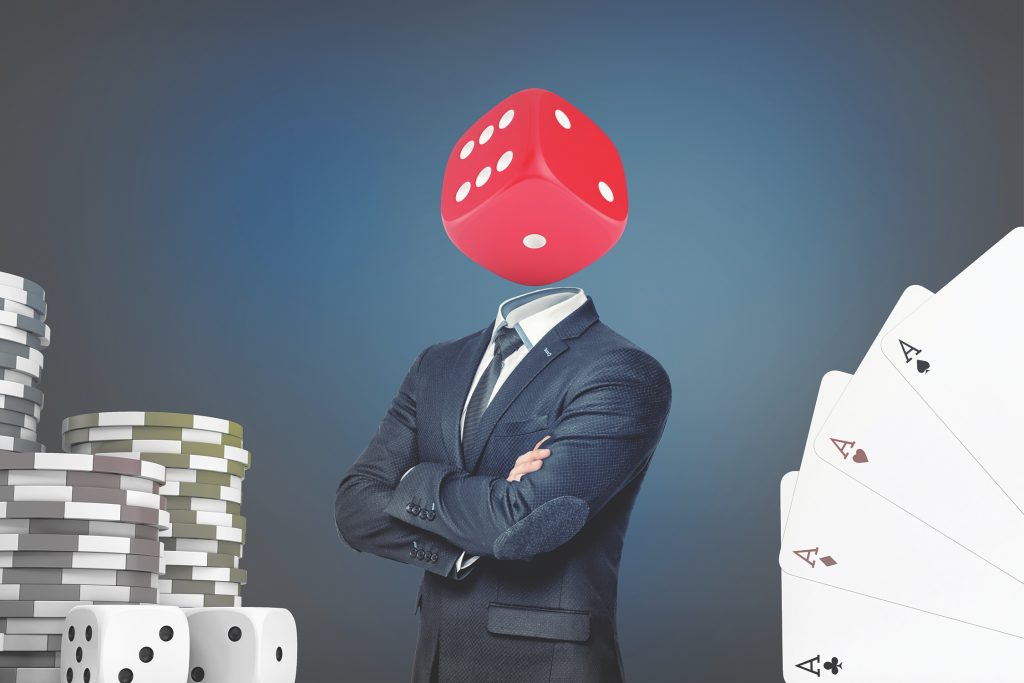
Picture yourself at a Las Vegas poker table, holding a bad hand—one with a very low chance of winning. Even so, the sight of the large stack of chips that piled up during a recent lucky streak nudges you to place a large bet anyway.
Why do people make high-risk decisions —not only in casinos but also in other aspects of their lives—even when they know the odds are stacked against them?
The decision to “up the ante” even in the face of long odds is the result of an internal bias that adds up over time and involves a “push-pull” dynamic between the brain’s two hemispheres, according to a team led by biomedical engineer Sridevi Sarma, an associate professor and a member of the Institute for Computational Medicine. Whether you are suffering from a losing streak or riding a wave of wins, your cumulative feelings from each preceding hand all contribute to this nudge factor, the researchers say.
Insights from the research have the potential to shed light on how soldiers in high-risk combat situations make decisions and to facilitate more effective brain training to change long-term behaviors or habits, the researchers suggest.
“What we learned is that there is a bias that develops over time that may make people view risk differently,” says Sarma, senior author of a study that was published online in January in Proceedings of the National Academy of Sciences. Pierre Sacré, a postdoctoral fellow at Johns Hopkins, co-led the study.
For their study, Sarma and team turned to patients with epilepsy who had already undergone stereoelectroencephalography, a procedure in which doctors implanted multiple deep-seated electrodes in patients’ brains to allow the doctors to locate the source of seizures for future surgical treatment.
Then the Johns Hopkins researchers asked these patients to play a simple card game involving risk taking. The electrodes gave Sarma and her team an intimate look at the patients’ brains in real time as they made decisions while gambling against a computer.
“We found that the players are accumulating all the past card values and all the past outcomes, but with a fading memory,” Sarma says. “In other words, what happened most recently weighs on a person more than older events do. This means that based on the history of a participant’s bets, we can predict how that person is feeling as they gamble.”




